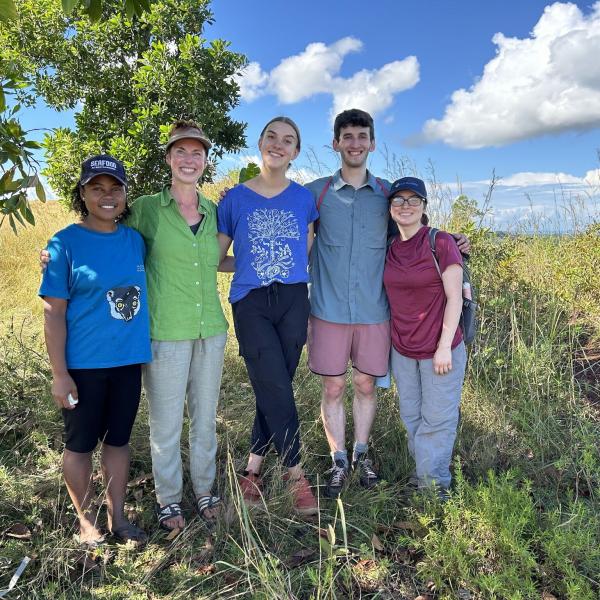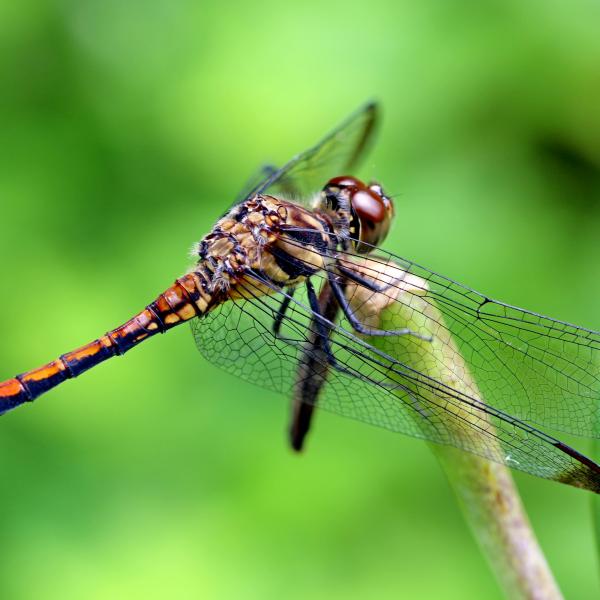With so many possible paths available, how do you pick a major? Two ArtSci undergraduates share their perspectives.
For some, selecting a major is a rigorous process, one involving plenty of trial and error, while for others the process is as simple as taking an introductory course and feeling at home. No matter the path you take to arrive at your particular field of study, declaring a major is a profound, exciting decision. Just in time for next week's Major-Minor Welcome Sessions for sophomores, the Ampersand interviewed two ArtSci students, Ben Tiger and Calann Edwards, about their major selection experience.
What is your major, and did you come to college thinking that's what you would study?

Tiger: My major is geochemistry, offered by the Department of Earth and Planetary Sciences. I started off as an economics major but soon realized it was not for me, which had me looking for alternatives at the start of my sophomore year.
Edwards: I have two majors. They are English literature and linguistics. I knew I wanted to major in English in college, but I happened to find a love for linguistics here, as well.
What drew you to this major?
Tiger: Growing up, I was always fascinated by the natural world, and my parents helped nourish that curiosity. I also love the outdoors (wilderness backpacking is a hobby of mine). I realized that I could do exciting science in the lab and in the field with an EPSc major, the best of both worlds. It would allow me to pursue my curiosity about the natural world as a career.
Edwards: I always loved to read, so I knew I wanted to be a Lit. major. My freshman year, however, I took an introductory linguistics class and was amazed at all of the information about language as a human tool. I was drawn to the major because it showed me that I not only have a love for reading but for words in general.
What has been the best thing about studying what you study?

Tiger: I enjoy my major because it has powerful, relevant applications that advance our understanding of the history and functioning of the natural world. It is really just a big and very clever chemical toolbox. Radiogenic isotopes from meteorites can be used to date the formation of the solar system and the Earth. Characteristic biomarker molecules preserved in ancient rocks can constrain life’s evolutionary history. Fossils of microscopic plankton preserved in the seabed can be used to determine Earth’s temperature and ice volume millions of years ago. How crazy is all of that! Lots of it seems to verge on science fiction. But this field is very real, as it has profound implications for understanding problems we face in the modern, such as anthropogenic climate change. Currently, I am working on a senior thesis to reconstruct climatic and environmental change in the high Peruvian Andes. Hopefully this research can shed some light on the effects of past and present climate change on that region and broaden our geochemical “toolbox.”
Edwards: The best thing about studying my majors is how they simultaneously compliment and contrast each other. Each one deals with a different aspect of words and language, which never ceases to fascinate me. I have always been good at reading, so it's been great earning a degree in a field that I am proficient in and that I love. Linguistics, on the other hand, challenges me in a way literature does not. I'm not as quick at picking up on all the complexities of language as I am in reading and understanding stories. But I think finding a major that challenges you to step out of your comfort zone and learn to study consistently and persistently is one of the greatest privileges of higher education.




